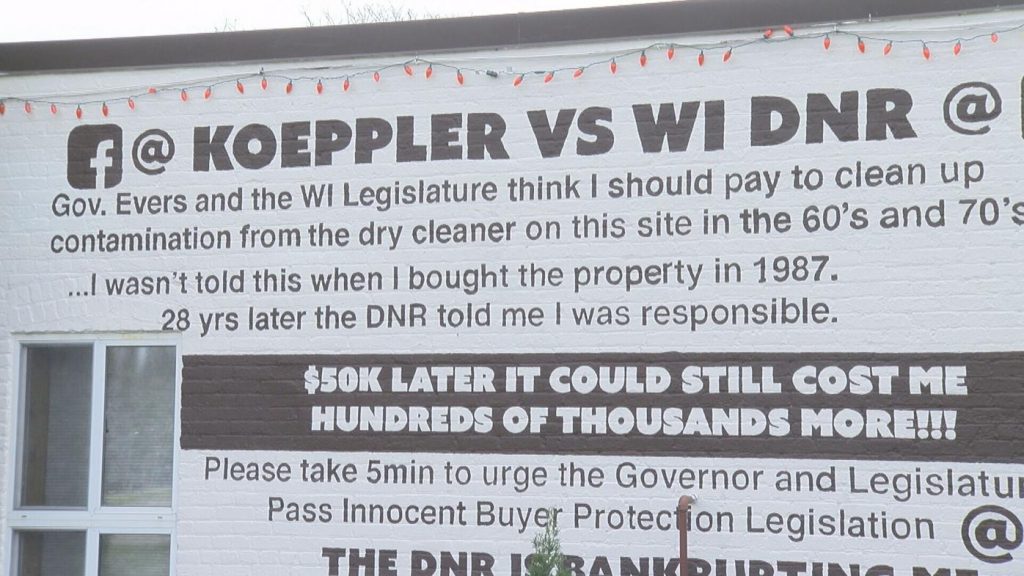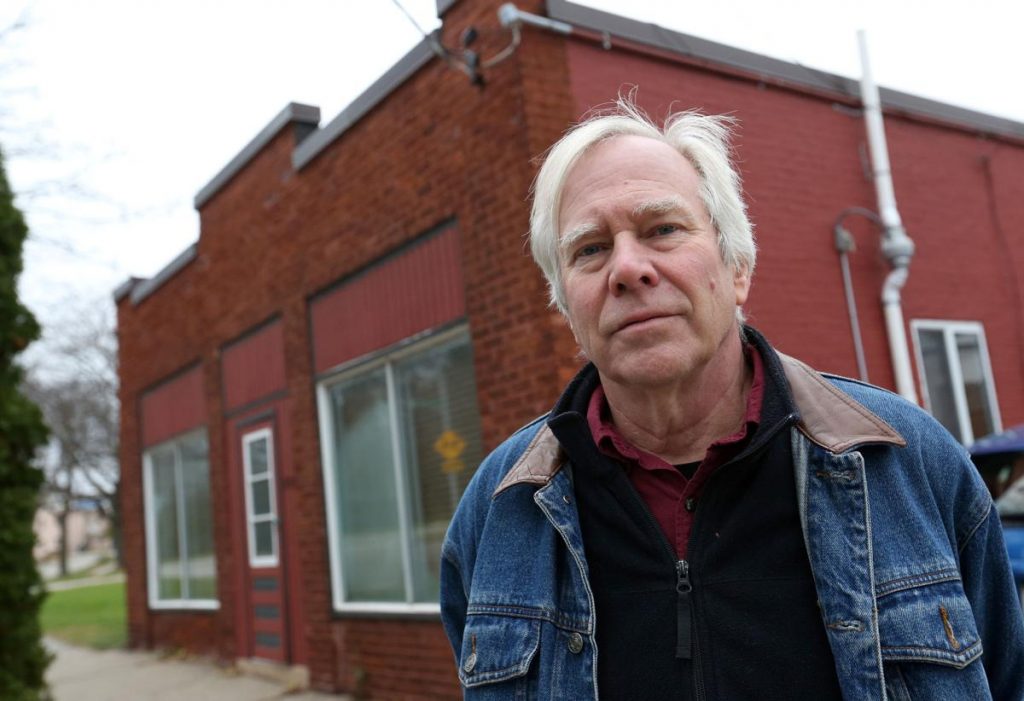
“I had no idea there was a problem,” Ken Koeppler says of his knowledge of the property’s condition at the time he purchased it in 1987.
Koeppler says he used the home as a primary residence and a recording studio for more than a decade before moving and renting the property to tenants. He says in 2015, inspectors with the Wisconsin Department of Natural Resources asked to check the site for contamination and he agreed to allow that.
Koeppler and state officials say the presence of the potentially hazardous, grease-cleaning chemical Trichloroethylene – also known as PCE – was discovered in the soil and seeping into the home. Unknown to Koeppler at the time of his purchase, the property was formerly operated as a dry cleaning business Hansen’s Vogue Cleaners, and PCE has been used by businesses in that industry. Koeppler and officials say the business’s owners have died.
Under the state’s Spills law, DNR officials have required Koeppler to cover costs associated with testing, mitigation and clean up of the site.
Koeppler says he’s installed a vapor mitigation system and taken other steps. Koeppler says he’s spent over $50,000 and is refusing to make more payments on what he maintains is an open-ended state quest to continue to identify and rectify the contamination’s potential.

“It didn’t seem to be an end coming, certainly one that I could afford,” Koeppler says.
“Contamination from former dry-cleaning sites typically does not break down naturally and the potential for additional public health impacts worsen over time if they are not addressed,” says DNR Spokesperson Sarah Hoye.
Hoye says state officials used an Environmental Protection Agency software tool to determine if Koeppler had the ability to pay for the next steps in addressing the contaminated site. “The conclusion…was that Mr. Koeppler had the ability to pay,” Hoye says.
“In my opinion, they misrepresented my assets,” Koeppler says.
“I don’t think these laws were meant to be forcing individuals to come up with this kind of money,” Koeppler says. “This situation was conceived to deal with corporate polluters.”
State Sen. Andre Jacque (R-De Pere) and other lawmakers are pushing what’s dubbed “Innocent Buyer” legislation to exempt certain property owners of environmental clean up responsibility.
“It doesn’t make sense that someone who had no knowledge, no contribution toward the contribution…..bankrupting themselves,” Jacque says.
“Those who are responsible for the mess should the responsibility to pay for cleaning it up,” Jacque says.

